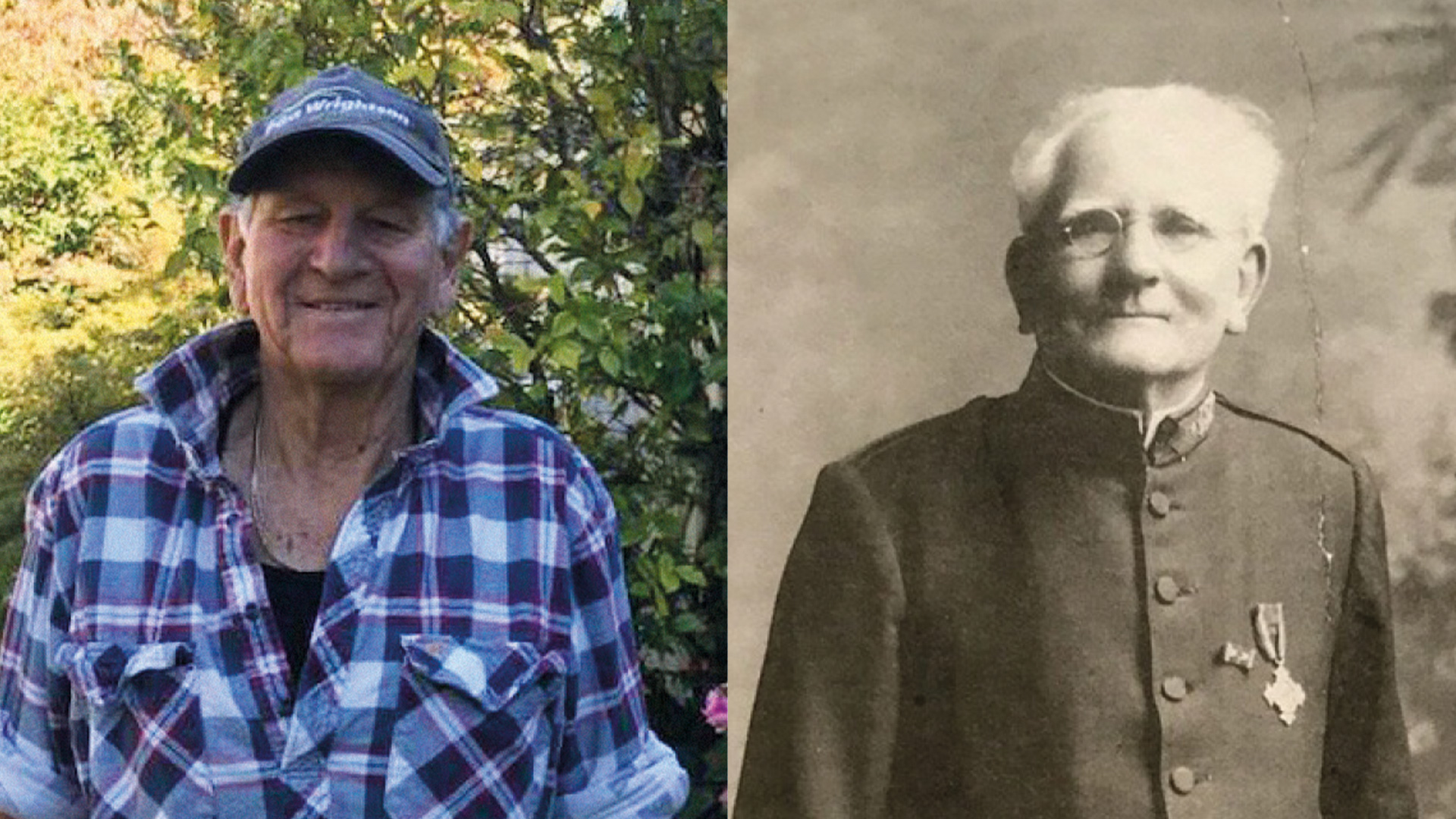
3 minute read
Generational Ties
The longevity of The Salvation Army in New Zealand means many families in our various communities have a heritage spanning generations of involvement in The Salvation Army. David Scott shares his intergenerational connections with the Army and the profound influence this has had on his life.
The Salvation Army has been part of my family’s story for generations. My great-grandfather William Scott was born in Bristol, England, in 1857. After hearing an address from co-founder General William Booth, he joined The Salvation Army at the age of 22. William served as an officer in the Army for 68 years, rising to the rank of commissioner. William and his wife became close personal friends of General William Booth, his wife Catherine, and their son General Bramwell Booth. He treasured the letters he received from William Booth and was a pallbearer at Catherine Booth’s funeral.
During his career as an active officer William held many appointments throughout England. Officers in the Army often endured much opposition in those days and my great-grandfather was subjected to multiple attacks and persecution. Permanent damage caused by injuries contributed to his early retirement to the Isle of Wight, where he remained an active member of the local corps (church).
My grandfather John Herbert Scott arrived in New Zealand in 1906, landing in Petone, Wellington. He settled in Whanganui and was a bootmaker by trade. He owned several shoe repair shops in Whanganui and played the cornet in the Salvation Army band.
My father, Neil Scott, was born in 1914 in Whanganui. As an adult, he owned a shoe shop along the street from the Princess Hotel in Palmerston North. My father had many acquaintances who were Salvationists. He was good friends with a Salvationist, Daniel Hoare, a fellow shoe repairer. They used to trade leather goods.
I remember a man from The Salvation Army called Sam McCosh who wore a long grey coat and rode a motorcycle with a saddle bag of War Cry magazines. He would arrive when Dad closed the shop and have a cup of tea with him before he went to the hotel to talk to men and hand out copies of The War Cry When the pub closed at 6pm, he would return and have another cup of tea with my father.
My father made sure we attended Sunday school at the local Salvation Army corps. I remember attending the open-air services run by The Salvation Army as a child and young adult. People would gather in a circle on a Friday night, listen to preaching and sing hymns together. My father could not leave the shop, but he encouraged me to go and to sing and read Bible verses. I became very proficient in playing the tambourine. I can still do a great rendition of ‘When the roll is called up yonder’ (SASB 559). That sort of witnessing in the 1940s and 1950s was hugely impactful for many people. I am testament to this, as this experience was formative in shaping my faith. I also have fond memories of The Salvation Army band playing on the back of a truck driving around the streets of Palmerston North taking up a collection.
Even now, I can vividly remember numerous lyrics from the Salvation Army songs I learned during my childhood, and I cherish my friendships with fellow Salvationists throughout the years. I deeply appreciate the connections I have to The Salvation Army, and how it has woven itself into my family’s heritage for generations.










